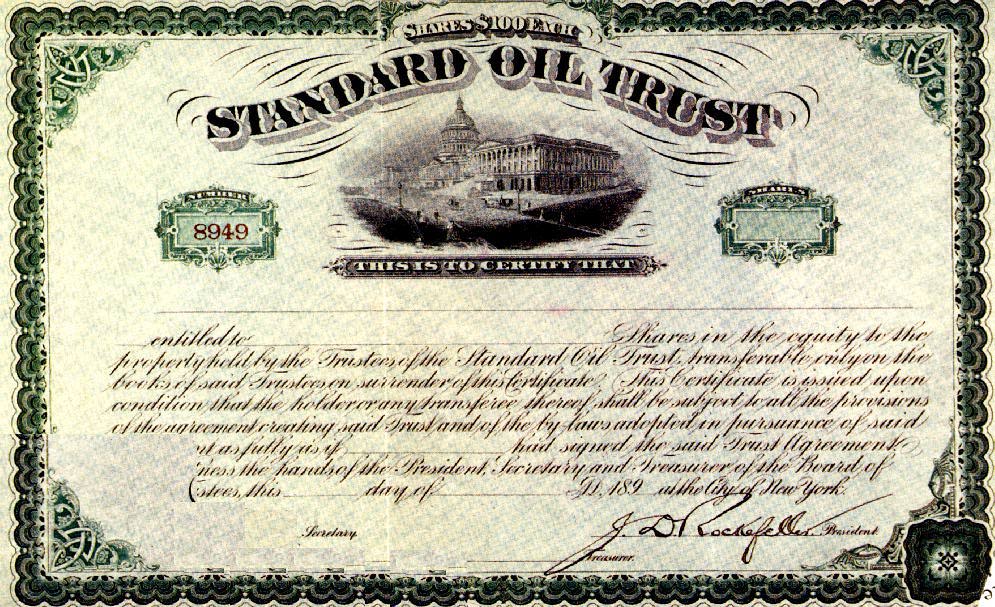Oil titan John D. Rockefeller was the world’s first billionaire and, on an inflation-adjusted basis, the wealthiest American of all time.
Born into modest circumstances in 1839, he entered the then-fledgling oil business as a young man. By the early 1880s, he controlled roughly 90% of U.S. refineries and pipelines.
His flagship company, Standard Oil, was broken up in 1911 by the Sherman Antitrust Act.
And he gave away the vast majority of his fortune, establishing the University of Chicago and the Rockefeller Institute for Medical Research, among others.
Yet, according to Forbes, his 200 or so surviving descendants still have a collective net worth of approximately $11 billion.
During his lifetime, Rockefeller enjoyed all the privileges and trappings of vast wealth.
He owned an estate in New York City; one in Lakewood, New Jersey; another – set on nearly 3,000 acres – in Tarrytown, New York; plus a winter home (The Casements) in Ormond Beach, Florida.
He had butlers, chefs, maids, drivers and personal assistants. His prodigious wealth allowed him to buy the finest furniture, art and any luxury he fancied.
What would you give to change places with Rockefeller?
Think long and hard before you answer.
Because by almost any objective standard, you are far richer today than Rockefeller was a century ago.
Sure, he had huge homes. But without air conditioning, they were sweltering hot in summer. And inadequately heated in winter.
He traveled by chauffeured limo, but there was no heat or air, and his cars frequently broke down on the rough, poorly maintained roads.
When that happened, he could not call for help or alert friends or business associates.
After all, his phone was back home, attached to the wall. It did not send or receive texts. It did not take photos or videos. And, for some odd reason, it would not browse the internet.
If Rockefeller wanted to travel longer distances, he didn’t hop on a plane. Crossing the country took weeks. So did sailing across the Atlantic and back.
(And you really prayed for good weather.)
If he wanted to go shopping, choices were sparse. There were no designer clothes. No electronic gadgets.
And Rockefeller – an avid golfer – never swung anything like the new Callaway Paradym driver (with its 360-degree carbon chassis to maximize off-center hits and promote faster ball speed).
His entertainment choices were limited. A century ago there was no radio, no TV, no Netflix.
Sure, he could listen to music on a state-of-the-art phonograph of the era, complete with lo-fi sound, pits, pops and skips. But he never heard it through lightweight earbuds or noise-canceling headphones.
His food choices were few and strictly limited to what was in season.
There were few – or generally no – Chinese, Italian, Indian or Mexican restaurants to patronize.
He couldn’t even conceive of our typical salad bar because he couldn’t have imagined a global transportation network capable of providing green beans from Mexico, apples from Poland and cashews from Vietnam together in the same meal.
Despite his enormous fortune, Rockefeller – and his family – lived harder, dirtier, gloomier lives than we do today.
Most of those lives were shorter, too.
His wife and daughters were far more likely to die during childbirth. His children and grandchildren were far less likely to survive infancy.
Many infectious – and often fatal – diseases had not yet been eradicated.
Dental care wasn’t superior. (It’s rumored that toothbrushes didn’t even vibrate.)
There was no sending or receiving overnight packages. No daily news from around the world. No stopping in Starbucks on a whim for a cinnamon dolce crème latte.
Rockefeller couldn’t download music, stream movies or watch his favorite team on a large-screen Ultra HD TV.
What would you give to trade places with Rockefeller, the richest American ever?
The only sensible answer is “I wouldn’t.”
Your ancestors a few generations removed would look at your life today – with all the labor-saving devices and countless small luxuries – as the realization of some utopia.
We are living longer, safer, healthier, richer, freer lives than any people in history.
Yet for decades we have told pollsters that the country is on the wrong track and our children face a diminished future.
But if you wouldn’t dare change places with the wealthiest American of all time from less than a century ago – an eyeblink in the long march of human history – what’s really needed is a little perspective.
And perhaps a bit of gratitude.
